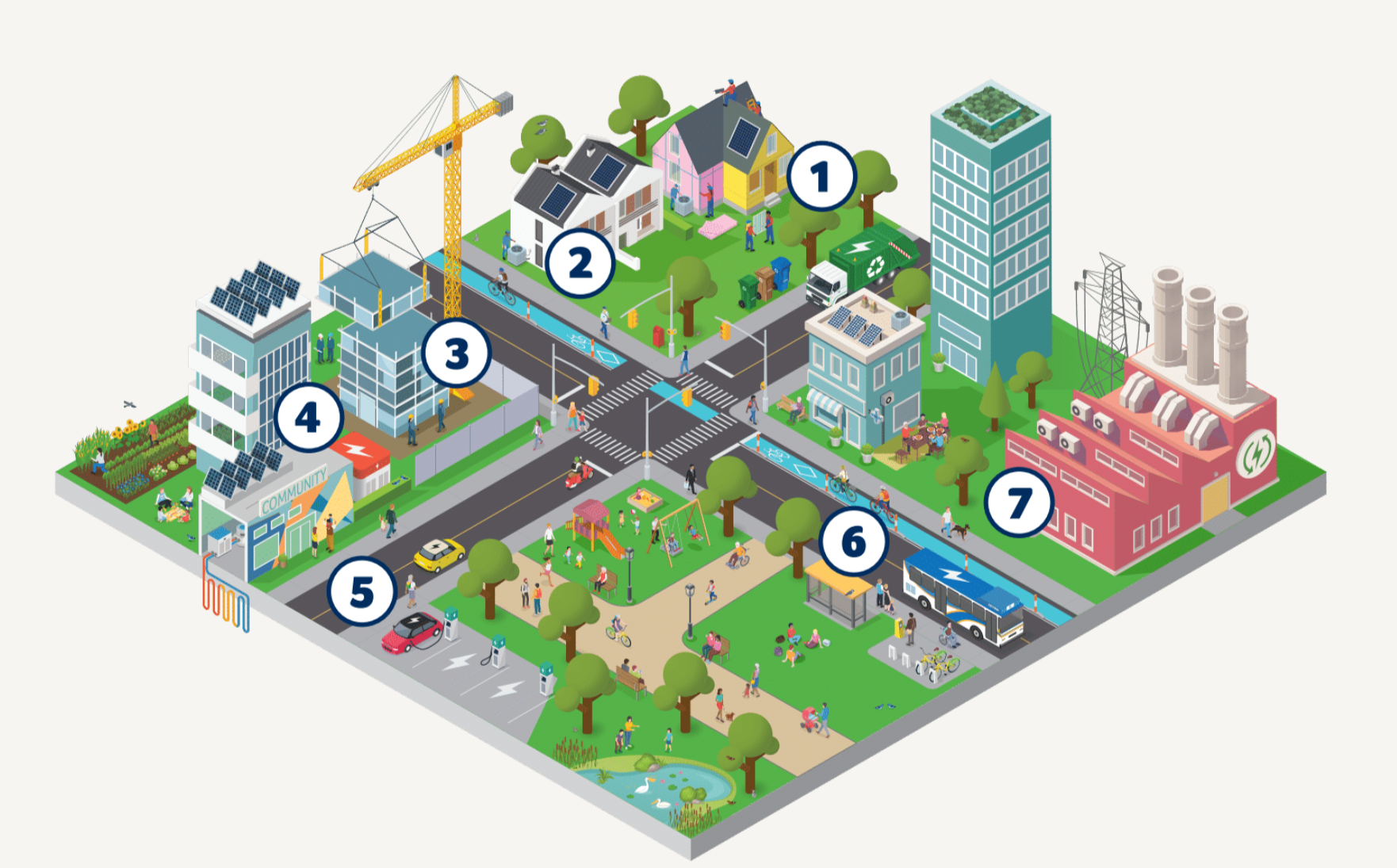
Becoming a Renewable Community
The City of Regina is committed to becoming a renewable, net-zero community by 2050, a target unanimously set by City Council. A path to achieve this goal was laid in 2022 when Regina’s Energy & Sustainability Framework was approved.
Regina’s Energy & Sustainability Framework is an exciting, community-wide plan to help slow climate change and create a more resilient, healthy and wealthy community by cutting emissions, reducing energy use, and shifting to renewable or low-carbon energy sources. It is ambitious and requires sustained effort from the City of Regina, residents and all sectors of the community.
To achieve the 2050 goal, the framework outlines Seven Big Moves. The Big Moves work together and follow the strategy of “Reduce, Improve, Switch”.
We all have a role to play. Learn how climate change is impacting our community, how you can take action and how we can work towards making a Renewable Regina, together.
The City of Regina serves as a catalyst for this community transformation by leading by example, forming partnerships, and providing information and resources. Find out what we’re doing to advance the Renewable Regina actions.
Community Benefits
The Framework represents an investment opportunity that will create jobs, promote businesses, reduce greenhouse gas emissions, and benefit the City and the community. Some of the most direct benefits for residents include lower energy bills and better transit and active transportation networks.
The potential economic benefits to our community are significant. Actions in the Framework are estimated to result in the growth of 4,000 jobs per year, on average. By 2030, a financial return on investments in the framework actions begin to generate, totaling an overall financial return of $12.5 billion by the year 2050.
What is a Renewable City?
A renewable city is one whose annual energy consumption is equal to or less than the amount of renewable energy generated or sourced in alternative to non-renewable energy sources.
Globally, cities are responsible for an estimated 75 per cent of energy consumption and an equivalent share of greenhouse gas emissions. As a result, the largest number of jurisdictions to adopt a 100 per cent renewable target are municipalities. A few cities, such as Reykjavik and Burlington, Vermont have already achieved that goal in at least one sector.
Many other larger global cities have adopted a 100 per cent renewable energy goal in one or more of the electricity, heating and cooling, or transportation sectors. Some of these cities include Vancouver, Munich, Sydney, Hamburg, San Francisco, Barcelona, San Diego, and Malmö.
Reporting
Measurement and reporting of energy consumption and GHG emissions for both the community and the City is required to determine if actions are successful.
A baseline measure for the community was developed in 2021 as part of the Framework development. The model utilizes several different data sets from sources such as SaskPower, SaskEnergy, City of Regina, fuel databases and more.
The City measures and reports on corporate emissions on an annual basis and uses this data to determine where to focus efforts to have the largest impact on energy consumption and emission reductions.




